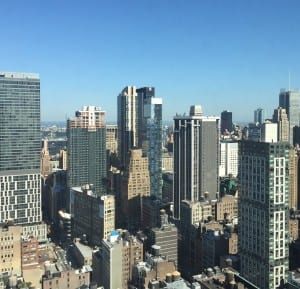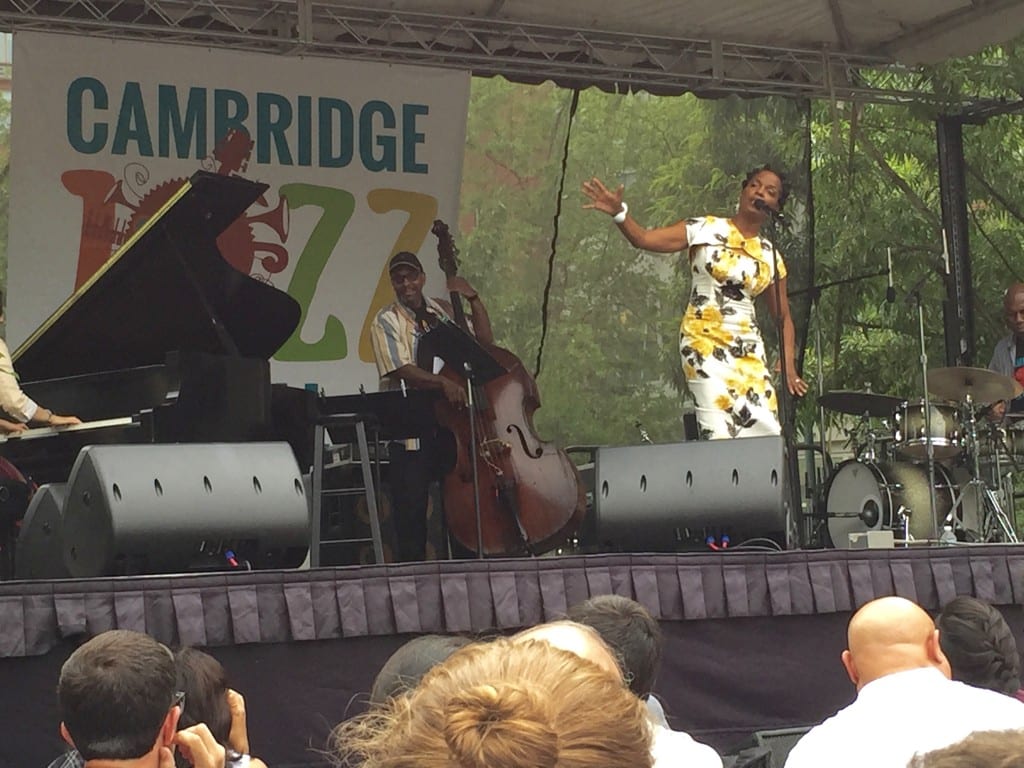 I write on a (delayed) Amtrak train back from a quick trip to Manhattan, where my 21-year-old daughter has a summer internship. Each time I visit New York City I am reminded of how excited I was to move there at her age right after college — and why I was so ready to leave after eight years. NYC’s livability is in direct proportion to one’s income and personal tolerance for crowds, noise, and, at this time of year, the urban heat island effect — not to mention one’s ability to escape to a weekend house or to self-insulate in a cocoon of wealth and privilege. When I hear people assert the necessity of adding more and more density to Cambridge, I wonder how they define a livable city, whether they have ever lived in Manhattan, and if they view it more as a model of transit-oriented design or a cautionary tale of unsustainable growth. I also think about how the small spaces that most New Yorkers live in drive them outside to crowd the city’s limited public spaces; the much-admired High Line is a victim of its own success, virtually impassable at midday on a summer Friday. Cambridge planners should anticipate that the residents of the thousands new small units, especially the studios and micro-units, will demand a variety of “third places” and parks in which to socialize and recreate.
I write on a (delayed) Amtrak train back from a quick trip to Manhattan, where my 21-year-old daughter has a summer internship. Each time I visit New York City I am reminded of how excited I was to move there at her age right after college — and why I was so ready to leave after eight years. NYC’s livability is in direct proportion to one’s income and personal tolerance for crowds, noise, and, at this time of year, the urban heat island effect — not to mention one’s ability to escape to a weekend house or to self-insulate in a cocoon of wealth and privilege. When I hear people assert the necessity of adding more and more density to Cambridge, I wonder how they define a livable city, whether they have ever lived in Manhattan, and if they view it more as a model of transit-oriented design or a cautionary tale of unsustainable growth. I also think about how the small spaces that most New Yorkers live in drive them outside to crowd the city’s limited public spaces; the much-admired High Line is a victim of its own success, virtually impassable at midday on a summer Friday. Cambridge planners should anticipate that the residents of the thousands new small units, especially the studios and micro-units, will demand a variety of “third places” and parks in which to socialize and recreate.
I will be reflecting on such questions on Monday evening, as I listen to the presentations by the three firms competing for the contract for the Cambridge citywide master plan. On paper each team (Utile, Will + Perkins, Sasaki) seems very well-qualified for the job, and I will be interested to see whether one stands out in tomorrow’s four-hour dog and pony show. I will say that Utile’s proposal impressed me with its frank acknowledgement that prior plans have “fallen by the wayside because of a lack of feasible implementation strategies or shifting interests” (pg. 28) and for its assertion that the special permit process will likely need to change (pg. 30). The Utile team appears to have an especially solid understanding of the challenges and opportunities in planning growth around the Alewife area. I appreciate both Utile’s and Perkins + Will’s inclusive approach to public engagement, but am skeptical about Sasaki’s heavy reliance for input on a Steering Committee composed entirely of city staff. Ultimately my evaluation will be based on the degree to which each team appears able to forge a shared vision from conflicting public input and ground it into realistic scenarios and fundable action plans for the short-, medium- and long-term. Monday’s public presentations at City Hall will be live-streamed starting at 5:30 pm for those following this initiative.
Campaigning is cutting into my time for reading, but this weekend I began “Waking Up White” by Debby Irving, a Cambridge resident and former public school teacher. I was engrossed in Debby’s story of awakening to her white privilege — which very closely resembles my own — during my long delay in Penn Station. For a sample of what it means to “wake up white,” read Debby’s recent blog post entitled “Let’s Go There.”
Finally, kudos to my old friend former City Councillor Larry Ward for organizing a very successful 2nd Annual Cambridge Jazz Festival. Amtrak eventually delivered me home in time to hear headliner and homegrown talent Nnenna Freelon perform her set. And, by coincidence, Debby Irving was a recipient of one of the festival’s “Cammy” awards for her work promoting racial justice.


No Comments